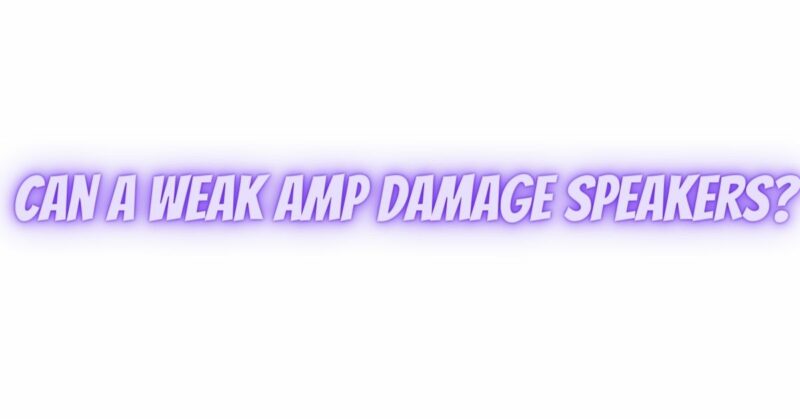The relationship between amplifiers and speakers in an audio system is critical for achieving the desired sound quality and ensuring the longevity of your equipment. While it’s common to focus on the potential damage caused by overpowering speakers with a too-strong amplifier, the question of whether a weak amplifier can damage speakers is also worth exploring. In this article, we’ll examine the risks associated with using an underpowered amplifier and whether it can harm your speakers.
Understanding Amplifier Power and Speaker Ratings
To understand the potential risks of using a weak amplifier, it’s essential to grasp the concepts of amplifier power and speaker ratings:
- Amplifier Power (Wattage): Amplifiers provide electrical power to drive speakers and produce sound. The power output of an amplifier is measured in watts (W) and determines how loud the speakers can play.
- Speaker Power Handling (RMS): Speakers have power handling ratings, often referred to as RMS (Root Mean Square) power. This rating specifies the maximum continuous power the speaker can handle without damage. Exceeding this rating can potentially harm the speaker.
Risks of Using a Weak Amplifier
Using an amplifier with lower power output than what the speakers are rated for can lead to several risks, though it’s important to note that these risks are generally less severe than those associated with overpowering speakers:
- Distortion: An underpowered amplifier may distort the audio signal when pushed to its limits. Distortion can lead to poor sound quality and listener fatigue, but it is unlikely to cause physical damage to the speakers.
- Clipping: When a weak amplifier is driven to high volumes, it may clip the audio signal, resulting in a harsh, distorted sound. While clipping itself won’t necessarily harm the speakers, it can cause listener discomfort.
- Overheating Amplifier: An underpowered amplifier may become overworked when attempting to provide enough power to the speakers. Over time, this can lead to overheating and potentially damage the amplifier itself, but it is less likely to harm the speakers directly.
- Overdriven Signals: In some cases, an underpowered amplifier may produce overdriven signals that contain higher levels of distortion. While this distortion can affect sound quality, it is not typically a direct threat to the speakers.
Protecting Your Speakers
To protect your speakers and ensure optimal audio quality, it’s essential to match the amplifier’s power output to the speakers’ power handling ratings. This helps avoid both overpowered and underpowered scenarios. When considering the pairing of amplifiers and speakers, follow these guidelines:
- Select an Amplifier Within Speaker’s RMS Range: Choose an amplifier with a power output that falls within the RMS power handling range of your speakers. This ensures a balanced and safe power match.
- Avoid Continuous Overloading: Continuously pushing an underpowered amplifier to its limits can lead to overheating and potentially harm the amplifier. If you notice distortion or clipping, consider upgrading to a more suitable amplifier.
- Use Caution with High-Volume Playback: When using a weaker amplifier, exercise caution when playing audio at high volumes to minimize the risk of distortion and discomfort.
- Monitor Speaker Performance: Regularly inspect your speakers for any signs of physical damage, including torn cones or damaged voice coils. If you notice any issues, address them promptly.
In conclusion, while using a weak amplifier with speakers may result in sound quality issues such as distortion and clipping, it is unlikely to directly damage the speakers. The key to preserving your speakers and achieving optimal audio quality is to match the amplifier’s power output to the speakers’ power handling ratings to ensure a safe and balanced pairing.


